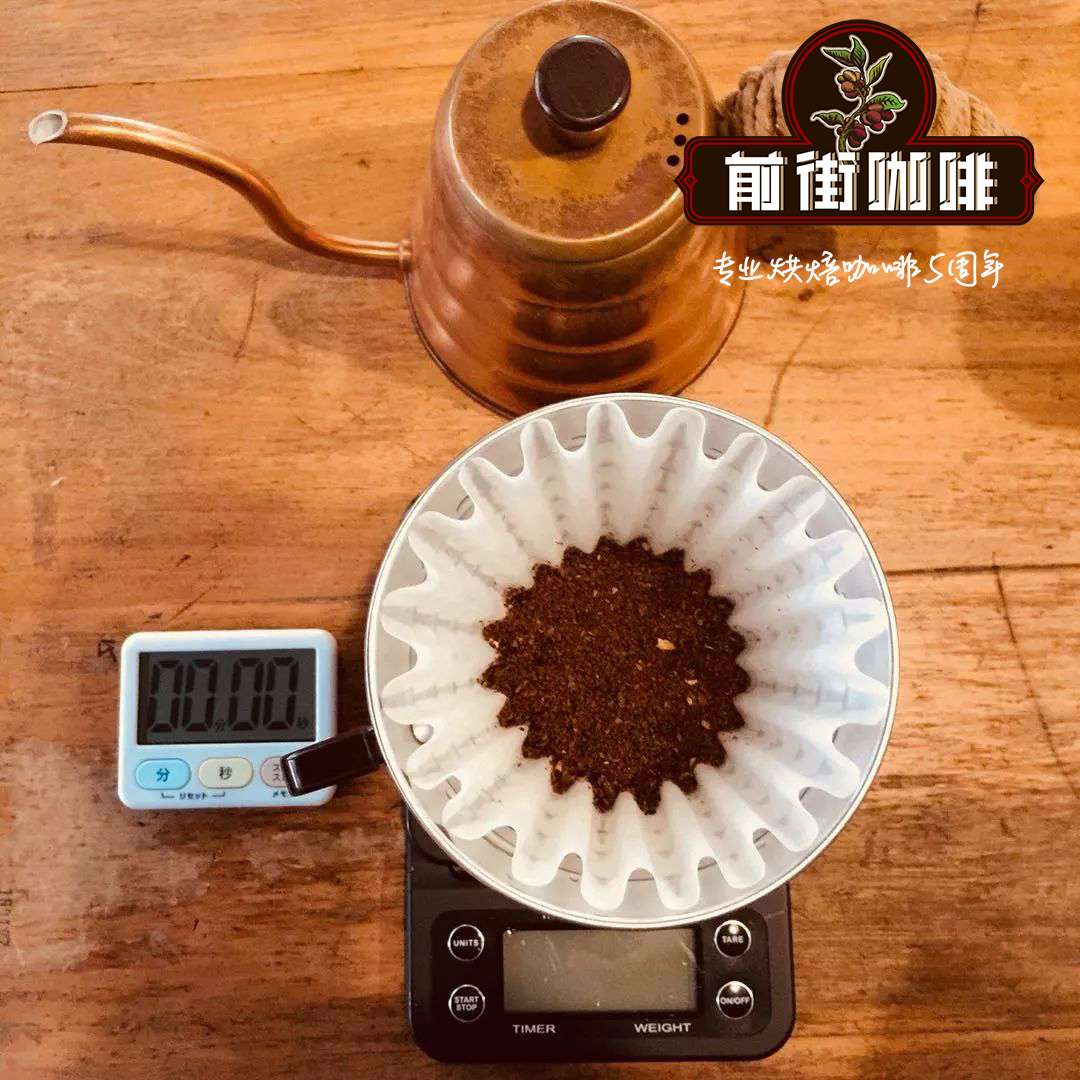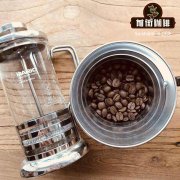Latin American coffee flavor characteristics of Latin American coffee beans to drink how much money a packet?

Professional coffee knowledge exchange more coffee bean information please follow the coffee workshop (Wechat official account cafe_style)
Introduction to the Flavor of Coffee beans in Latin America
Characteristics of taste: balanced, moderate acidity and mellow taste
The flavor of Central and South American beans: generally speaking, the flavor is relatively regular. The Brazilian coffee is soft and sweet, while the Costa Rican coffee is gentle and supple, with a blend of sour, sweet and chocolate aromas.
Panamanian coffee has strong aromas of citrus, jasmine, almond, mango and nectar. Its acidity is bright and changeable, and it is very similar to Ethiopia's national treasure bean Yegashafi. Pacamara coffee has a pleasant spicy aroma, a hint of ginger, sour and fruity. The most important feature of Nicaraguan coffee is its charming almond flavor, which tastes stuffy.
The overall flavor of Latin American coffee is famous for its balance, and all the flavors in Latin American coffee can be found in Latin American coffee. The widespread use of wet treatment of raw beans is also one of the characteristics of Latin American coffee, good processing also makes its beans larger and more uniform than African coffee, and the defect rate is lower.
[representative]:
Colombia
Colombia is one of the largest producers of high-quality coffee in the world, a bright pearl in the world coffee map and a coffee land blessed by God. Arabica coffee is grown on steep slopes 800 to 1900 meters above sea level and is hand-picked and washed.
[Bayernardo, Colombia] (deep baking in washing)-sucrose, clean, medium mellow thickness, Santa Rita Manor, located in Antioquia, Colombia, treats coffee in the traditional way: picking coffee cherries by hand. Then the coffee fruit is washed and dried in a scaffolding. The environment around the Andes makes this coffee-growing area rich in volcanic soil and rich in water resources.
El Salvador
El Salvador coffee is also extremely high quality, and unique flavor: a strong sense of balance, fresh and lively, mild taste, sweet and pleasant, can be described as "pure natural flavor". This is because of the fertile soil, suitable altitude, good climate, intergenerational planting techniques and tree species with fine pedigree.
[Ataisi Manor Pacamara in El Salvador] (washed moderately roasted)-Nuts chocolate, passion fruit, cream, strawberries, the national average of high altitude, such a geographical environment is very conducive to the growth of coffee, farmers use the traditional way of growing: almost 100% shade planting. Pacamara is the artificial breeding variety of Pacas and Maragogipe, and Pacamara is a rare excellent variety under artificial breeding.
Guatemala
Guatemala is a coffee producing area that can not be ignored and is a typical representative of coffee flavor diversity. SHB (hardest bean) in Guatemala is almost a well-known synonym for high-quality coffee. There are eight major producing areas in Guatemala, with a mysterious sense of smoke. most of the coffee producers are of Mayan descent, and the whole territory has more than 300 microclimates in the world, which typically illustrates the rich regional flavor of coffee. Antigua / Vivette Nango (Highland) / Akanango (Valley) / Koban (Rainforest) / Lake Attilan / New Oriental / San Marco (Volcano) / Farahan (Plateau)
[Guatemala]-- the world's top manor Guatemala [Incht Manor] bid for Pandora Pacamara, with smooth taste, full flavor, outstanding sweetness of nuts and sweet tropical fruit.
Bolivia
The unique tropical rain forest environment in some parts of Bolivia provides excellent natural conditions for the growth of organic coffee. The aroma of Bolivian coffee is rich and unique, both after the bean is ground and the aroma of the coffee is quite rich, similar to the mixture of flower and fruit aromas, the perfect nutty flavor is impressive.
[Lake Titicaca, Bolivia] (moderately roasted in water)-dry aromas of roasted nuts and almonds, soft acidity of oranges and white grapefruit on the palate, sweet caramel as a whole, smooth texture of firm fruit milk, cleanliness and balance, and attractive herbal aromas.
Panama
Panamanian caffeine is famous in the world, and the reason is that it is closely related to Panama's unique physical and geographical conditions. Moderate curry body, smooth taste, delicate acidity, well-balanced taste value, coupled with subtle flavors such as caramel, chocolate, citrus and jasmine.
[Boquete Pocket] this is the Panamanian region we are most familiar with. The special mountainous terrain of this area forms a microclimate which is very suitable for growing coffee. Planting varieties: Tibica, Kaddura, Kaduai, bourbon, Rose Summer.
[butterfly] is it a mix of beans? No, the three varieties in the flower butterfly are all from the same place and the same area, so it belongs to the single bean! Because of the particularity of this [flower butterfly] in the variety, medium-shallow baking makes it not only have the unique fragrance of flowers and white grapes, but also have the sweetness and smoothness of honey, the aroma and finish are very long-lasting, and the taste is quite amazing.
Costa Rica
The coffee beans produced at the high latitudes of Costa Rica are famous in the world, full-bodied, mild in taste, but extremely sour. The coffee beans here have been carefully processed, which is why they have high quality coffee. Located in the south of SanJos é, the capital of Tarasu, Costa Rica is one of the most valued coffee growers in the country.
Honey treatment method
Honey treatment, called HoneyProcess or Miel Process, is used in coffee gardens in Costa Rica (Costa Rica), Panama (Panama) and Guatemala (Guatemala), which is called Honey Coffee. The so-called honey treatment refers to the process of making raw beans with mucous membrane for sun-drying. After the outer pulp of the coffee bean is removed, there will be a layer of sticky jelly. The traditional washing method washes it away with clean water, but this direct drying method has been born because of the limitations of water resources in some high-altitude areas.
What is the difference in flavor between yellow honey, red honey and black honey in Costa Rican honey treatment?
Simple understanding: the more pectin you keep, the richer and sweeter the coffee will be. Here is a comparison of the flavors of several honey treatments in our cafe:
Fenghuang Manor red honey flavor: dried fruit, vanilla, honey, thick and delicate taste, good sweetness, soft acidity, round and full, long-lasting finish, strong sucrose sweetness of plum, raspberry, chestnut and tail rhyme, and the fragrance of apple peel.
Yerzaro processing plant yellow honey flavor: famous for its excellent natural geographical conditions and excellent regional planting management technology, almost perfect classic flavor, lively citrus flavor in acidity. BlackBerry fruit aroma, acidity and texture, melons sweet taste smooth, drupe / micro-flower aroma, while the finish has a significant coffee flower aroma, is a full of Latin country taste coffee.
Rami Manor Black Honey treatment: with the mild acidity, soft taste and sweet high-quality berry flavor treated with honey, the most obvious difference between them is that they are sweeter than the other from yellow, red and black, plus richer fruit rhymes. The biggest feature is a very amazing sweetness, plum, honey, brown sugar tail rhyme.
Latin American coffee bean brand recommendation
All kinds of Latin American coffee beans baked in Qianjie Coffee are fully guaranteed in brand and quality. And more importantly, the performance-to-price ratio is extremely high, a pack of half a pound 227 grams, the price is only about 80-100 yuan. According to the calculation of 15 grams of powder per cup of coffee, a bag of coffee can make 15 cups of coffee, which costs only about 5 or 6 yuan per cup, which is recommended by conscience compared to the price sold in cafes for hundreds of yuan a cup.
Important Notice :
前街咖啡 FrontStreet Coffee has moved to new addredd:
FrontStreet Coffee Address: 315,Donghua East Road,GuangZhou
Tel:020 38364473
- Prev

What do you recommend in Latin American coffee producing areas? how much is a cup of Latin American coffee?
Professional coffee knowledge exchange more coffee bean information please follow the coffee workshop (Wechat official account cafe_style) in terms of production, coffee beans in Latin America account for about 60% of the world's coffee production, Africa and Arabia account for about 20%, and the remaining 20% are distributed in Asian countries and islands. In South America, Brazil accounts for 30-50% of the world's output, Goran.
- Next

What are the varieties and flavor characteristics of Latin American coffee beans? Latin American coffee bean price list 2020
Professional coffee knowledge exchange more coffee bean information Please pay attention to the coffee workshop (Wechat official account cafe_style) Central and South American flavor characteristics: balanced, moderately sour and mellow Central and South America is the world's largest coffee producing region, there are numerous boutique coffee here. French naval officer Gabriel Mathieu de Clieu experienced difficulties and dangers in 1721.
Related
- Does Rose Summer choose Blue, Green or Red? Detailed explanation of Rose Summer Coffee plots and Classification in Panamanian Jade Manor
- What is the difference between the origin, producing area, processing plant, cooperative and manor of coffee beans?
- How fine does the espresso powder fit? how to grind the espresso?
- Sca coffee roasting degree color card coffee roasting degree 8 roasting color values what do you mean?
- The practice of lattes: how to make lattes at home
- Introduction to Indonesian Fine Coffee beans-- Java Coffee producing area of Indonesian Arabica Coffee
- How much will the flavor of light and medium roasted rose summer be expressed? What baking level is rose summer suitable for?
- Introduction to the characteristics of washing, sun-drying or wet-planing coffee commonly used in Mantenin, Indonesia
- Price characteristics of Arabica Coffee Bean Starbucks introduction to Manning Coffee Bean Taste producing area Variety Manor
- What is the authentic Yega flavor? What are the flavor characteristics of the really excellent Yejasuffi coffee beans?

